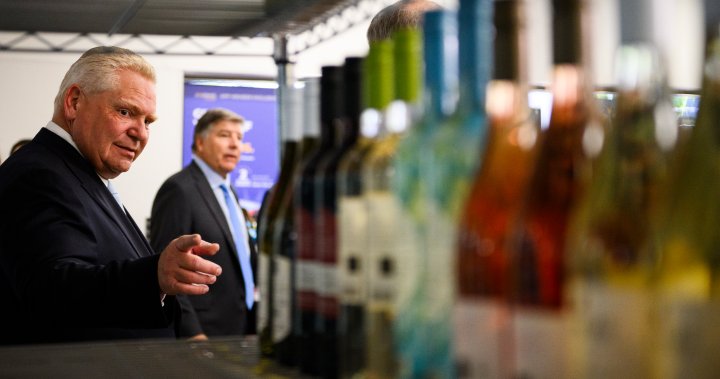The long-standing prohibition against U.S. alcohol imports to Ontario remains firmly in place, even as other western provinces have begun easing similar restrictions. The Liquor Control Board of Ontario (LCBO) confirmed yesterday that despite growing pressure from consumers and cross-border retailers, the province has no immediate plans to lift the controversial ban that prevents Ontarians from legally importing alcoholic beverages from American suppliers.
“The existing regulations serve to protect Ontario’s robust domestic alcohol industry while ensuring quality control and provincial revenue streams remain intact,” explained LCBO spokesperson Jennifer Morrison in an exclusive interview. “While we continuously review our policies, any significant change would require careful consideration of economic impacts across multiple sectors.”
The confirmation comes just weeks after British Columbia announced a gradual relaxation of its import restrictions, allowing residents to bring limited quantities of American craft beers and wines across the border without facing penalties. Alberta implemented similar measures earlier this year, creating a growing east-west divide in Canadian alcohol import policies.
Ontario’s stance has drawn criticism from consumer advocacy groups who argue the ban artificially inflates prices and limits choice. “Ontarians are paying premium prices for products readily available at significant discounts just across the border,” noted Marcus Thompson, director of the Consumer Choice Coalition. “In 2024, this type of protectionism feels increasingly outdated and ultimately hurts the average consumer.”
Economic analysis suggests the province collects approximately $2.5 billion annually in alcohol tax revenue, a substantial portion of which could be compromised by liberalized import rules. According to CO24 Business research, the LCBO’s monopoly structure contributes nearly $2.4 billion to provincial coffers yearly, making any policy shift potentially costly for government services.
The Ontario Craft Brewers Association has vocally supported maintaining the restrictions, citing concerns about market disruption. “Our industry employs over 10,000 Ontarians directly and thousands more indirectly,” said Association President Daniel Moore. “Unrestricted American imports could devastate small and medium producers who simply cannot compete with the economies of scale enjoyed by major U.S. manufacturers.”
Cross-border communities feel the impact most acutely. In Windsor, where Detroit sits visibly across the river, residents regularly witness the price disparities firsthand. “It’s frustrating to see the same bottle of wine selling for 40% less just a mile away,” said Windsor resident Sophia Patel. “Many people I know risk the fines and bring alcohol back anyway, especially around holidays.”
The federal government has maintained a hands-off approach to provincial liquor regulations, consistent with Canada News reporting on interprovincial trade barriers. Minister of Intergovernmental Affairs Dominic LeBlanc previously indicated that while Ottawa encourages harmonization of provincial regulations, alcohol control remains firmly within provincial jurisdiction.
Industry experts predict continued pressure for change as consumer expectations evolve. “The younger demographic increasingly expects the same purchasing freedoms they see in other jurisdictions,” explained Dr. Helena Ramos, economics professor at University of Toronto. “The question isn’t if Ontario will eventually modify these restrictions, but when and how.”
For now, Ontarians returning from U.S. travel remain subject to strict limits—a single bottle of wine or 24 cans of beer—with excess amounts subject to confiscation and substantial penalties. Border enforcement data shows over 5,800 alcohol seizures at Ontario crossing points in 2023 alone.
As other provinces move toward more permissive frameworks, will Ontario’s resistance to change ultimately prove sustainable, or will consumer demand eventually force a reconsideration of these decades-old restrictions?























